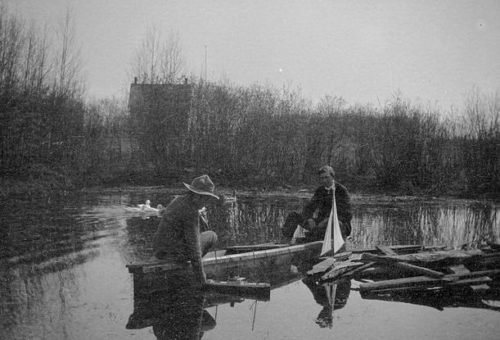Do you have a favorite pirate story or pirate movie? Often, I picture the sailors in the story of Jonah like they’re out of pirate lore.
He [Jonah] said to them, “Pick me up and hurl me into the sea! Then the sea will become calm around you. I know it’s my fault that this great storm has come upon you.”
The men rowed to reach dry land, but they couldn’t manage it because the sea continued to rage against them. So they called on the Lord, saying, “Please, Lord, don’t let us perish on account of this man’s life, and don’t blame us for innocent blood! You are the Lord: whatever you want, you can do.” Then they picked up Jonah and hurled him into the sea, and the sea ceased its raging. The men worshipped the Lord with a profound reverence; they offered a sacrifice to the Lord and made solemn promises. – Jonah 1:12-16
The story of Jonah isn’t just about him and a giant sea creature. The story of Jonah is about a merciful, compassionate God who wants a prophet to deliver a message to the city of Ninevah. Ninevah was the capital city of the Assyrian Empire and pretty much a terrible place to be.
Jonah hears God and does not want to be the messenger, so he runs and finds himself on a ship headed in the opposite direction. He is hanging out with a bunch of pagan sailors, then he takes a nap during an incredible storm.
And then Jonah wakes up. He does it literally and metaphorically. The storm is raging, and Jonah wakes up from his deep sleep, thanks to the help of a friendly pagan sailing officer. Now Jonah realizes what he must do. He tells the sailors to toss him overboard, because he believes that his God is acting like all the other gods, punishing him and them in the process. (That is so “Ancient Near East” of Jonah.) However, God is going to reveal who he really is to Jonah – just not in this part of the story.
After Jonah says, “hurl me into the sea,” something strange happens. The sailors start rowing to dry land. Though it’s easy to skip ahead and assume that they picked him up and tossed him right in – they didn’t. These outsider sailors are acting in a gracious way — a foreshadowing of a gracious God who will relent and not destroy an entire corrupt city.
They decide to try to take him to shore rather than toss him in. They want to do the generous thing here. Their attitude evokes what Jesus said in Matthew 5:40-42:
When they wish to haul you to court and take your shirt, let them have your coat, too. When they force you to go one mile, go with them two. Give to those who ask, and don’t refuse those who wish to borrow from you.
They are going the extra mile.
In the end, they can’t get past the storm; rowing to shore isn’t an option. So they pray, but this time they pray to the Lord God. They are not looking to their gods anymore. In a strange sort of way, Jonah has pointed them to his. They pray and say, “Please, Lord, don’t let us perish on account of this man’s life, and don’t blame us for innocent blood! You are the Lord: whatever you want, you can do.”
They toss him in, and the seas are stilled. This brings about the following behavior:
- The sailors worship the Lord with profound reverence.
- They offer a sacrifice to the Lord.
- They make solemn promises.
Who knew that this would be a transforming part of the story for these sailors? In what seemed like a moment of defeat for Jonah, there’s actually a small victory. He just wanted to be done with following God. But even as he is asking for the sailors to toss him to his death, they are converted, and Jonah’s life is preserved.
What should we make of this?
It is never too late to turn to God. If these pirates can do it, you can too.
How might God take your unwilling attitude or even your defeat and use it to make a difference in someone’s life?
So don’t discount the superstitious sailors and the pirates in your life – they just might be an example of how to respond to God.




